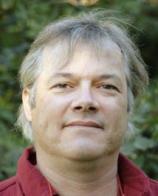Henry Garfield
Lecturer III
5752 Neville Hall, Room 203
Orono, Maine 04469-5752
Office Telephone: 207.581.3802
E-mail: henry.garfield@maine.edu
Office Hours – by appointment
Education
Master of Fine Arts in Creative Writing, University of Southern Maine, July 2004
San Diego State University (Astronomy major)
University of Maine at Orono (History, English)
Beloit College, Wisconsin (English Composition)
Courses Taught:
ENG 101: College Composition
ENG 205: Introduction to Creative Writing
ENG 212: Persuasive and Analytical Writing
Faculty Positions
University of Maine at Orono, 2007-present
Eastern Maine Community College, 2001-present
University of Maine at Farmington, 2005
Husson College, 2004-2005
Stonecoast Writers Conference, 2002-2003
Unity College, 2001-2003
Palomar Community College, San Marcos, CA 1995-1999
Novels
Tartabull’s Throw – Simon & Schuster, May 2001
Room 13 – St. Martin’s Press, July 1997
Moondog – St. Martin’s Press, March 1995
Young Adult Novels
My Father the Werewolf – Simon & Schuster, August 2005
The Lost Voyage of John Cabot – Simon & Schuster, July 2004
Essays and Short Fiction
The Heroes Challenge the Gods to a Ballgame, 108 Magazine, Spring 2007
A Love Letter to Normal Heights, San Diego Magazine, December 1999
Landing on Hardhead, Down East Magazine, August 1995
Drive-by Critics Should Stop and Look, Los Angeles Times, July 1992
other credits include Diehard, Games Magazine, San Diego Union-Tribune, Maine Times
In addition to teaching, Hank works as a consulting editor for Bangor Metro magazine. His essays have appeared in San Diego magazine, Downeast, the Los Angeles Times, and the San Diego Union-Tribune.
He is a member of the Planetary Society, owing to a lifelong interest in astronomy, and is currently dabbling with the idea of writing a literary science-fiction novel.
“I don’t think writers should steer away from scientific and/or mathematical subjects just because they aren’t experts. In the same way that baseball teams need to fill seats with people who can’t necessarily field a ground ball, so too do the sciences need fans – people who appreciate the work and can articulately sing its praises. In the end, it’s all about imagination.”

